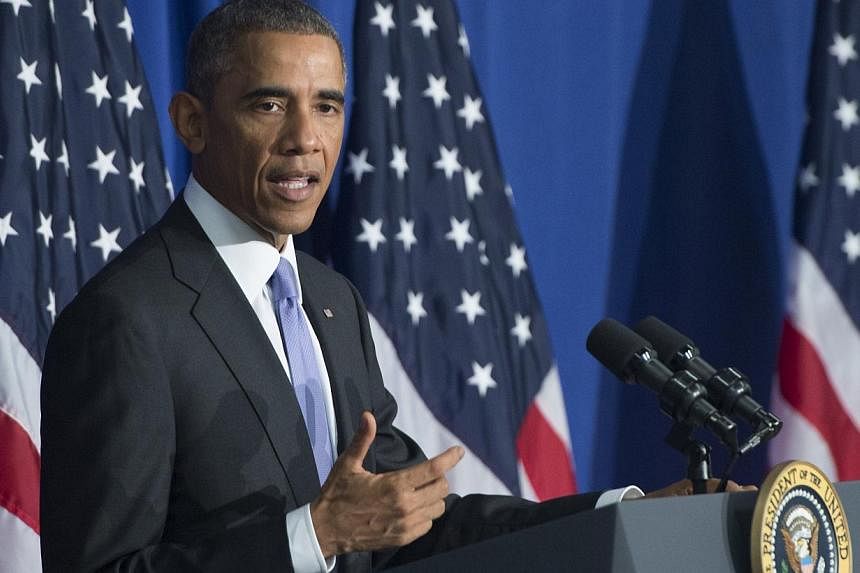WASHINGTON (AFP) - US President Barack Obama on Friday ordered "chip-and-pin" security measures for government payment systems, aiming to stem the proliferation of credit card fraud and identity theft.
The President signed an executive order which adds an extra layer of protection for US government cards and payment terminals, at a time when the financial industry is moving in the same direction.
"More than 100 million Americans had information that was compromised in data breaches in some of our largest companies. And identity theft is now America's fastest-growing crime," Mr Obama said as he signed the order.
"The idea that somebody halfway around the world could run up thousands of dollars in charges in your name just because they stole your number, or because you swiped your card at the wrong place in the wrong time, that's infuriating. For victims, it's heartbreaking. And as a country, we've got to do more to stop it."
The order puts government payments in a more secure system that have cut fraud in other countries.
Embedding a chip makes it far more difficult to produce a counterfeit card than one with a magnetic stripe, and a personal identification code adds additional security.
"We know this technology works," Mr Obama said.
"When Britain switched to a chip-and-pin system, they cut fraud in stores by 70 per cent."
The shift in the US has been slow because retailers, banks and payment processors all need to upgrade their technology.
But the change has accelerated following disclosures of high-profile breaches of payment systems at retailers including Target, Home Depot and Kmart.
At least 47 per cent of US merchant terminals will be enabled for chip technology by the end of 2015, according to the Payments Security Task Force which includes major banks and retailers, along with payment processing firms like Visa and MasterCard.

